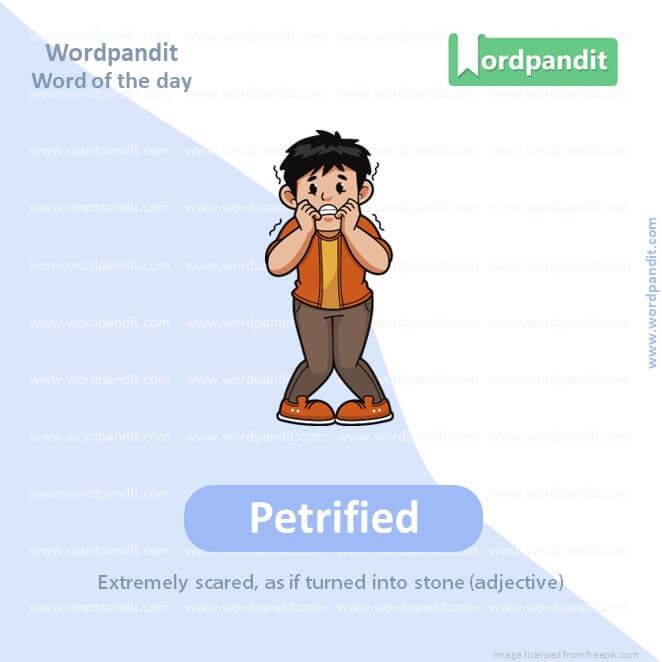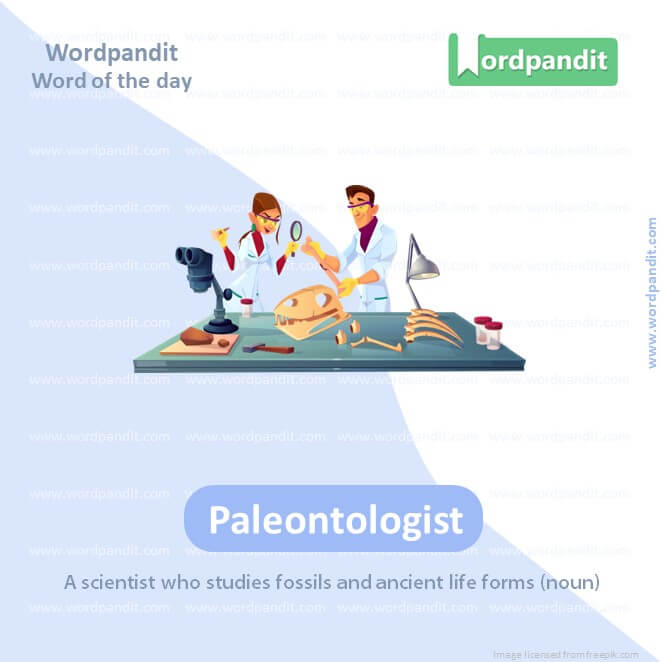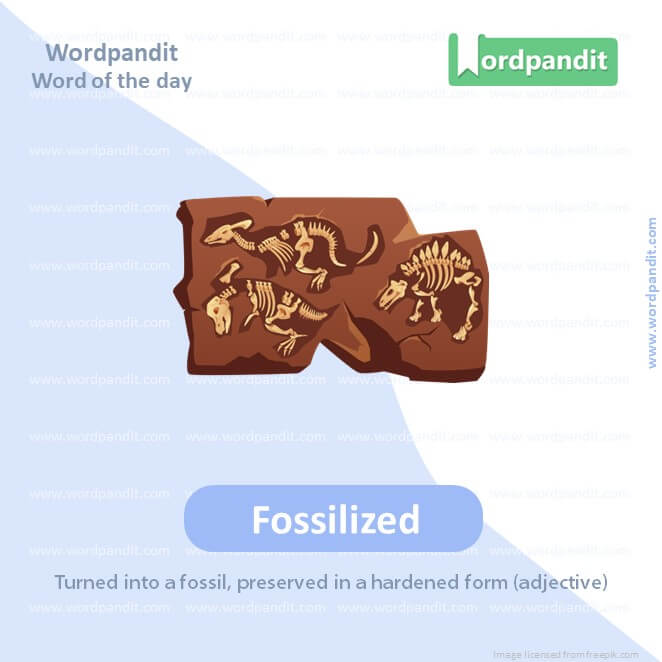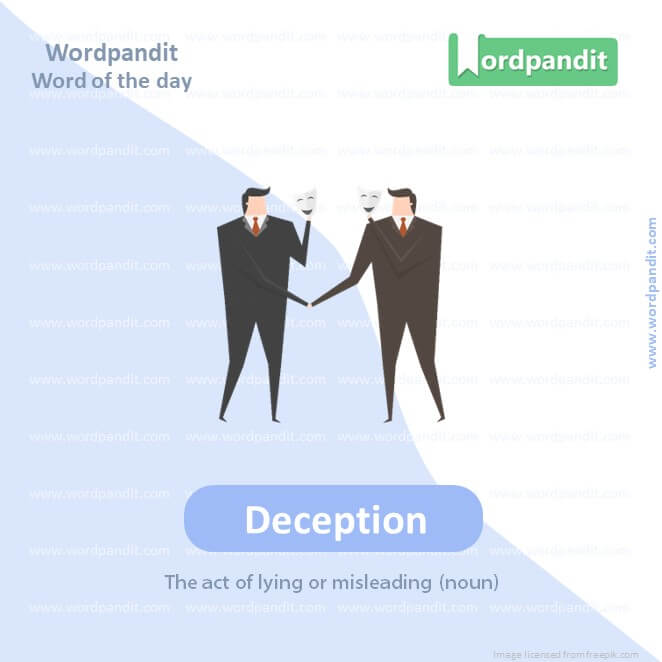Daily Vocabulary Words: List of Daily Used Words in Leading International Newspapers
Hi there. Welcome to this special section @ Wordpandit.
Our endeavour here is very simple: to highlight important daily vocabulary words, which you would come across in leading newspapers in the country. We have included the following newspapers in our selection:
• The New York Times
• The Washington Post
• Scientific American
• BBC
• The Guardian
• Psychology Today
• Wall Street Journal
• The Economist
We are putting in extensive work for developing your vocabulary. All you have got to do is be regular with this section and check out this post on a daily basis. This is your repository of words that are commonly used and essentially, we are posting a list of daily used words. Hence, this has significant practical application as it teaches you words that are used commonly in leading publications mentioned above.
Visit the website daily to learn words from leading international newspapers.

WORD-1: PETRIFIED
CONTEXT: A 10-foot-tall giant that was petrified in the biblical flood. A mountain excavation that turned up astonishingly detailed fossils of ancient worms and amphibians alongside artifacts that bore the letters of the Hebrew alphabet.
SOURCE: Scientific American
EXPLANATORY PARAGRAPH: Imagine you’re so scared that you feel like you can’t move, like you’ve turned into a stone statue. That’s what ‘petrified’ means. It’s like being frozen because you’re very, very scared.
MEANING: Extremely scared, as if turned into stone (adjective)
PRONUNCIATION: pet-ri-fied
SYNONYMS: Terrified, Frightened, Scared stiff, Horror-struck, Paralyzed
USAGE EXAMPLES:
1. She was petrified when she heard the strange noise in the dark.
2. The child stood petrified at the sight of the big dog.
3. He was petrified with fear during the thunderstorm.
4. The haunted house story left her feeling petrified.

WORD-2: PALEONTOLOGIST
CONTEXT: As a paleontologist who has examined fossils throughout the world, I have come across my fair share of fakes over the years. Most of them were small-time forgeries, such as a fossilized bird with false feathers painted on it and a headless aquatic reptile with the skull of another individual grafted on to make the skeleton complete.
SOURCE: Scientific American
EXPLANATORY PARAGRAPH: A paleontologist is like a detective who studies very old things like dinosaur bones and fossils. They learn about animals and plants that lived a long, long time ago.
MEANING: A scientist who studies fossils and ancient life forms (noun)
PRONUNCIATION: pay-lee-on-tol-o-gist
SYNONYMS: Fossil expert, Dinosaur scientist, Ancient life researcher, Prehistoric life specialist
USAGE EXAMPLES:
1. The paleontologist found dinosaur bones in the desert.
2. She wants to become a paleontologist and study ancient creatures.
3. The museum displayed findings from a famous paleontologist.
4. Paleontologists often work at archaeological sites.

WORD-3: FOSSILIZED
CONTEXT: As a paleontologist who has examined fossils throughout the world, I have come across my fair share of fakes over the years. Most of them were small-time forgeries, such as a fossilized bird with false feathers painted on it and a headless aquatic reptile with the skull of another individual grafted on to make the skeleton complete.
SOURCE: Scientific American
EXPLANATORY PARAGRAPH: ‘Fossilized’ means something very old, like a bone or a plant, has turned into stone over a very long time. It’s how we find out about creatures from a long time ago.
MEANING: Turned into a fossil, preserved in a hardened form (adjective)
PRONUNCIATION: fos-sil-ized
SYNONYMS: Petrified, Solidified, Preserved, Hardened, Calcified
USAGE EXAMPLES:
1. They discovered fossilized leaves in the rock.
2. The fossilized remains of the animal were displayed in the museum.
3. Scientists study fossilized plants to understand the past.
4. Fossilized insects can be found in amber.

WORD-4: DECEPTION
CONTEXT: To understand how these forgeries succeeded, we must explore the psychology of deception. Behind each great hoax, there stands a hoaxer. Some sought fame or academic recognition, others sought profit or revenge, and a few sought only amusement.
SOURCE: Scientific American
EXPLANATORY PARAGRAPH: Deception is when someone tells a lie or hides the truth to trick other people. It’s like pretending something is true when it’s not.
MEANING: The act of lying or misleading (noun)
PRONUNCIATION: de-cep-tion
SYNONYMS: Trickery, Dishonesty, Fraud, Deceit, Misleading
USAGE EXAMPLES:
1. The magician’s skill was based on deception.
2. He used deception to win the game.
3. There was a sense of deception in her words.
4. Deception is often used in spy movies.

WORD-5: HOAX
CONTEXT: To understand how these forgeries succeeded, we must explore the psychology of deception. Behind each great hoax, there stands a hoaxer. Some sought fame or academic recognition, others sought profit or revenge, and a few sought only amusement.
SOURCE: Scientific American
EXPLANATORY PARAGRAPH: A hoax is like a joke or a trick where someone makes up a story and tells others it’s true, but it’s actually not. It’s like telling a pretend story to fool people.
MEANING: A false story or trick made to deceive people (noun)
PRONUNCIATION: hohks
SYNONYMS: Prank, Fabrication, Deception, Falsehood, Sham
USAGE EXAMPLES:
1. The news about the alien sighting turned out to be a hoax.
2. They played a hoax on their teacher on April Fool’s Day.
3. The story about the treasure map was just a hoax.
4. Many people were fooled by the internet hoax.
WORD-6: AUTOIMMUNE
CONTEXT: At some point in your life, you could have about a one in five chance of developing an autoimmune disease. The odds are greater if you are a woman, you have a genetic predisposition to autoimmunity, or you are exposed to certain pollutants.
SOURCE: Scientific American
EXPLANATORY PARAGRAPH: ‘Autoimmune’ is when someone’s body gets confused and starts fighting its own healthy parts as if they were germs. It’s like the body’s defenders forget who the real enemy is.
MEANING: Relating to the immune system attacking the body’s own tissues (adjective)
PRONUNCIATION: aw-toh-im-mune
SYNONYMS: Self-reactive, Immune response, Self-attacking, Autoantibody-related
USAGE EXAMPLES:
1. She has an autoimmune disease that affects her joints.
2. Autoimmune disorders can be challenging to diagnose.
3. The treatment helps in reducing autoimmune reactions.
4. Autoimmune conditions often require lifelong management.
WORD-7: PREDISPOSITION
CONTEXT: At some point in your life, you could have about a one in five chance of developing an autoimmune disease. The odds are greater if you are a woman, you have a genetic predisposition to autoimmunity, or you are exposed to certain pollutants.
SOURCE: Scientific American
EXPLANATORY PARAGRAPH: A predisposition is like having a natural tendency or a chance to have something, such as a type of sickness. It’s like being more likely to get something because of how you were born.
MEANING: A natural tendency or inclination towards something (noun)
PRONUNCIATION: pree-dis-puh-zi-shun
SYNONYMS: Tendency, Inclination, Propensity, Susceptibility, Proclivity
USAGE EXAMPLES:
1. There is a genetic predisposition to diabetes in her family.
2. He has a predisposition to be good at sports.
3. Predisposition to certain allergies can be inherited.
4. Early experiences can shape a child’s predisposition.
WORD-8: DEVASTATING
CONTEXT: The effects of autoimmune disease are devastating. As a person’s own immune system attacks their body instead of microbes or cancerous cells, they can experience chronic fatigue, chronic pain, drug dependency, depression and social isolation.
SOURCE: Scientific American
EXPLANATORY PARAGRAPH: ‘Devastating’ is when something is very, very sad or causes a lot of damage. It’s like feeling super sad when your favorite toy breaks or seeing a big storm damage homes.
MEANING: Causing great damage or distress (adjective)
PRONUNCIATION: dev-uh-stay-ting
SYNONYMS: Destructive, Ruinous, Disastrous, Shattering, Heartbreaking
USAGE EXAMPLES:
1. The hurricane was devastating to the coastal town.
2. The news of the accident was devastating for the family.
3. The fire had a devastating effect on the community.
4. His criticism was devastating to her confidence.
WORD-9: ANNIHILATE
CONTEXT: These symptoms annihilate mental health, wreck promising careers, destroy lives and, often, ruin families. For too many, these illnesses result in early death.
SOURCE: Scientific American
EXPLANATORY PARAGRAPH: Annihilate means to completely destroy something. It’s like making something go away so that nothing is left of it at all, not even a tiny piece.
MEANING: To completely destroy or obliterate (verb)
PRONUNCIATION: uh-nigh-uh-late
SYNONYMS: Destroy, Obliterate, Wipe out, Eradicate, Demolish
USAGE EXAMPLES:
1. The army aimed to annihilate the enemy forces.
2. The new product threatened to annihilate its competition.
3. The firework display seemed to annihilate the night sky.
4. The invasive species could annihilate the local ecosystem.
WORD-10: EPIDEMIC
CONTEXT: Autoimmunity is an epidemic. To keep it from destroying so many lives, we urgently need to understand these diseases better and find more effective ways to prevent, diagnose, treat and cure them.
SOURCE: Scientific American
EXPLANATORY PARAGRAPH: An epidemic is when a sickness spreads very quickly to a lot of people in a place. It’s like when many people at school get a cold at the same time.
MEANING: A widespread occurrence of a disease in a community at a particular time (noun)
PRONUNCIATION: ep-i-dem-ic
SYNONYMS: Outbreak, Plague, Infestation, Surge, Wave
USAGE EXAMPLES:
1. The flu epidemic affected many people in the city.
2. Health officials are trying to control the epidemic.
3. The epidemic spread rapidly through the community.
4. Vaccination can help prevent an epidemic.
Vocabulary English Grammar
Delving into the vast universe of language learning, the ‘Vocabulary English Grammar’ acts as a beacon, illuminating the path to mastery. This synergy of words and rules forms the quintessential framework of the English language. However, understanding ‘Vocabulary English Grammar’ in-depth requires a fine-tuned strategy.
First and foremost, understanding ‘Vocabulary English Grammar’ goes beyond only remembering rules and words. It involves learning how a word functions in a grammatical context. To achieve this, resources like textbooks, online grammar guides, and interactive language learning apps prove to be very valuable.
However, embracing ‘Vocabulary English Grammar’ calls for consistent practice. Adopting thematic learning, where you concentrate on a specific grammatical concept and the vocabulary related to it, can be particularly effective. Reading material like articles and books, or engaging with podcasts and films can provide a real-world context to these concepts.
The key to mastering ‘Vocabulary English Grammar’ lies in constructing sentences. Instead of memorizing disconnected words and rules, start framing sentences. This active application significantly bolsters comprehension and provides practical insight into how grammatical rules govern the use of words.
To truly excel in ‘Vocabulary English Grammar’, it’s important to seek feedback. Participate in language exchange platforms or conversation clubs. These platforms provide an opportunity to apply what you’ve learned and obtain constructive feedback on your progress.
In essence, understanding ‘Vocabulary English Grammar’ is a step-by-step process that requires thoughtful learning, constant practice, application, and proactive feedback. By embedding these techniques into your language learning routine, you can confidently navigate ‘Vocabulary English Grammar’. Remember, mastering ‘Vocabulary English Grammar’ is not about perfection, but about progression and communication. Each rule learned, each word comprehended, brings you closer to the fluency in your English language journey.







